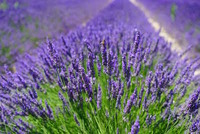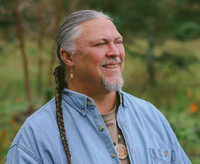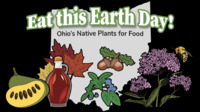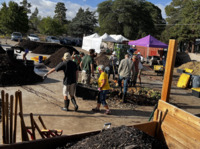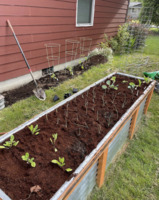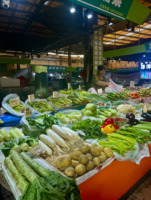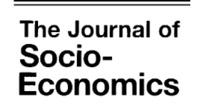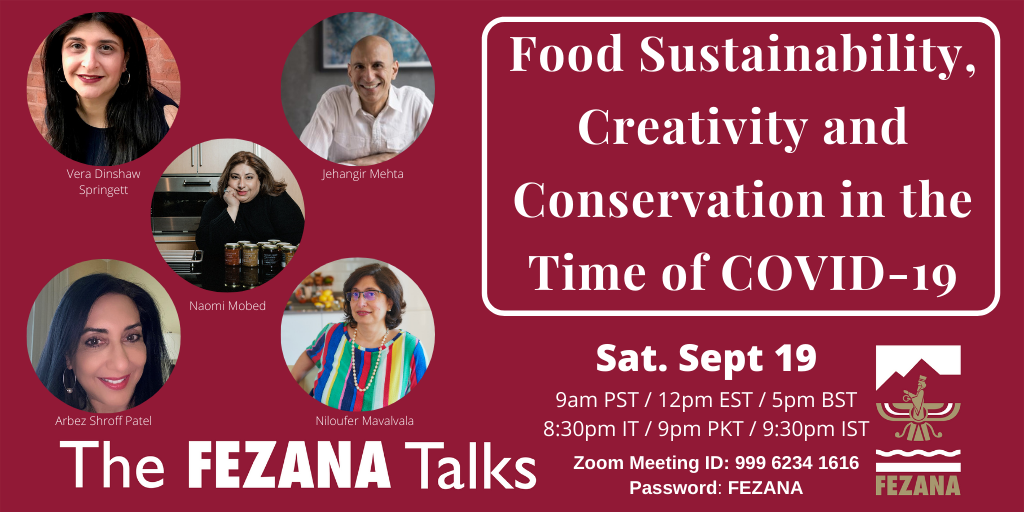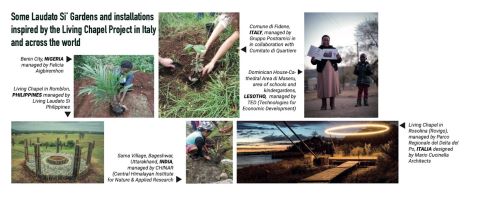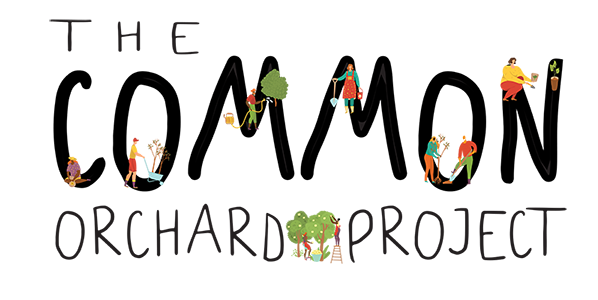Search
42 items
-
10 Eco-Mission Projects
Evangelical Environmental Network MOMS has created a list of family oriented service projects that focus on the environment. These ideas not only offer ways to serve the community, but also take care of God’s earth in simple but effective ways. -
For Love of Lavender
For Love of Lavender is an account of how Christine Sine, creator of Godspace and writer for Evangelical Environmental Network MOMS, encountered God through the beauty, fragrance, and abundance of the lavender in her garden. Reflecting on her garden informs her of God's work and calls to mind numerous bible verses, including Proverbs 27:9: The heart is delighted by the fragrance of oil and sweet perfumes, and in just the same way, the soul is sweetened by the wise counsel of a friend. Christine also mentions how to use these lessons to teach children. -
Columbus YMCA Youth Engage in 4-H Urban Gardening Program for Cultural Exchange with Youth in Accra, Ghana
This summer, dozens of Columbus North YMCA youth participated in 4-H urban gardening programs as part of an urban agriculture exchange program with 4-H and YMCA youth from Accra, Ghana. In response, in May of 2017, three Ghanaian youth and an advisor will travel to Columbus to share their urban agriculture experiences at the annual Ohio Future Farmers of America (FFA) conference at the Ohio State Fairgrounds. Please click the link below to read more: -
Fasting for Climate Justice
Fasting for Climate Justice is a resource from Global Catholic Climate Movement (GCCM ) on the practice of fasting for climate action through two initiatives: meatless Fridays and monthly fasting. The GCCM encourages abstinence from meat on Fridays as a way to reduce one’s negative impact on global climate change. The GCCM also promotes fasting for the climate which takes place the first day of each month. -
Evangelical Environmental Network: Trump Budget would harm National Parks and the Protection of God’s Other Creatures
The president of the Evangelical Environmental Network, Rev. Mitch Hescox, made a statement saying that the budget proposed by the Trump administration is a “devils bargain,” which would harm national parks and the protection of God’s creatures.
“The Trump Administration’s budget, if implemented, would be an abdication of our stewardship of our public lands, which are entrusted to each generation to pass on to their children.” -
Becoming a CreatureKind Institution
“Having compassion for others begs the question of who ‘the others’ are. The animals whom we farm are sentient beings and individuals in their own right, even when they are crowded together in barren cages or windowless sheds. They are surely – in their billions – ‘others’ who deserve and desperately need our compassion. I wish CreatureKind great influence in bringing compassion to these fellow-beings of ours.”
– Joyce D’Silva, Ambassador Emeritus,
Compassion in World Farming
CreatureKind is a Christian animal welfare group that works to help institutions improve their practice as it impacts farmed animals, with benefits for humans, animals, and the environment. Becoming a CreatureKind institution means committing to a cycle of reviewing current sourcing, setting goals for improved practice, and acting on them, together with engaging your community about the program. The program have two major goals: reduce consumption of animal products and obtain remaining animal products from higher welfare. -
CreatureKind Church Course
CreaturKind has created a 6-week course to help Christians think about what their faith means for animals. The course is free and is meant to assist churches in learning about animal welfare and how to care for animals faithfully. They aim to encourage Christians to consider what they believe about God’s creatures and how they might move toward living out those beliefs as members of the body of Christ. -
Sustainability Photo Contest
This RESTORExchange photo contest is being brought back from the pre-COVID era, and with an added collaboration with the Sustainability Institute. It's based around the question "What does sustainability look like?" This can include sustainability in environmental justice, technology, energy, lifestyle and wellbeing, society and culture, economy and politics, and any other context where you see sustainability in action. We want to see your perspectives and show all the different places that sustainability is practiced! Winning photos will be decided by a panel of judges (yet to be determined), and the top four photos will win a prize! First place will receive $400, second place will receive $300, third place will receive $200, and an honorable mention will receive $100. Submissions will be accepted through March 15, 2023. -
Decolonizing Thanksgiving
"As we head into the Thanksgiving holiday weekend in the United States, it’s great to think about all the things we can be grateful for. It is good to have a time to pause and reflect, to participate in the seasonality of gratitude for the year’s bountiful harvest, and to gather with family and friends. (We’ll ignore the über-consumerism of the day following Thanksgiving…)
Many of us probably know by now, however, that the story many of us learned in school about the first Thanksgiving is rather inaccurate at best, and racist and paternalistic in many ways, with a focus on the Manifest Destiny idea of the divine mandate for Europeans to conquer the “New World” in the name of Christ and country.
A few questions come to mind (at least my mind), for those of us with European-American roots, such as:
Should we even celebrate Thanksgiving, since it’s so tainted with colonialism?
What might it look like to “decolonize” our own understandings and our culture?
How can we do this work in a way that encourages our own folks to partner, rather than making them (our White brethren) feel further ostracized, but while also speaking real truth?
What can we do this Thanksgiving to begin to reconcile relationships damaged in the colonial era, both human to human and human to this land?" -
Checking on the Chickens With the Next Generation
"Checking on the chickens with the next generation. We built the coop from recycled materials, the chickens eat much of our food waste, provide eggs, and encourage us to think about the cycle of our consumption and how we can be more sustainable. We want our son to approach his entire life this way, and these chickens will be his responsibility as soon as able. We live in the city of Columbus so we try to bring a different lifestyle to city living."
Taken by Grace Freeman. Submitted to the Sustainability Photo Contest. -
EPN Signature Earth Day Event - Monday, April 22, 2024: Eat This Earth Day! Ohio's Native Plants for Food
"Ohio State’s Environmental Professionals Network, in collaboration with the Chadwick Arboretum and Learning Gardens and native plant enthusiasts from across the state, proudly invite you to eat and drink from Ohio’s native plants this Earth Day! Discover through your senses, the edible flora of the Buckeye State. Over long periods of history, through the tastes, smells, and eyes of diverse native wildlife and human cultures, both ancient and present, these plants have sustained life."
This event will take place on Earth Day, April 22, 2024 from 4:45 pm to 7:30 pm. Admission is free and the event will be held at the Fawcett Center in Columbus, Ohio. Food and drinks will be provided. -
Eat Close To The Ground!
"Eat Close To The Ground!" Taken by Linda Sterling. Submitted to the RESTORExchange Sustainability Photo Contest. -
Exploring Fresh Produce in a Chinese Wet Market
"Exploring Fresh Produce in a Chinese Wet Market: The diverse array of vegetables is what I long for the most about my homeland China, and there is no better place to shop for vegetables than wet markets, where produce is locally sourced. This is what sustainability looks like for me––where people eat green and shop locally. The photo features a typical vegetable stall at Tuandao Market in Qingdao, my partner’s hometown, where we savored last year’s summer together." Taken by Mianmian Fei. Submitted to the RESTORExchange Sustainability Photo Contest. -
Gateway Into Sustainability
"This photo depicts a gateway into sustainability. Portraying a pathway into a huge lush garden. I believe gardens of any kind are a sustainable practice. That brings people closer to the earth while also providing a variety of amenities for said people. Not to mention the wildlife that flourishes too.This photo was taken in the fall of 2022 at the botanical gardens in Madison WI. In my mind I envision you’re entering a new world which is a lush paradise. Among that it’s filled with vocal birds, reptiles of all kinds, an array of colorful flowers. On the flip side I also envision as if you’re leaving the suffocating, bland concrete world behind." Taken by Logan Gosse. Submitted to the RESTORExchange Sustainability Photo Contest. -
Ancient Judean Dates
A date tree planted in Ketura, Israel from 2000 year old seeds found at an archeological site in the Judean wilderness has finally bore fruit earlier this month (September 2020). The harvest was hailed a modern miracle of science. “In these troubled times of climate change, pollution and species dying out at alarming rates, to bring something back to life from dormancy is so symbolic,”... Date palms were praised in the Bible and the Quran, and became symbols of beauty, precious shade and succulent plenty. -
What Karl Marx has to say about today's environmental problems
Ted Benton, a Professor of Sociology at the University of Essex, writes about how Marx's theories can be applied to modern environmental issues such as climate change. He talks about how Marx's ideas about capitalism relate to current exploitation of nature, and specifically about soil degradation which was an issue during the 1860s when Marx was alive. He also includes problematic parts of Marx's attitudes towards nature, such as his praise of increased productivity of land that may have inspired Stalin. -
Himalayan Institute
Founded in 1969 by the great teacher and humanitarian, Swami Rama, the Himalayan Institute acts on the basis of yoga tradition and Eastern spirituality. Through the living connection to an ancient wisdom tradition of the Himalayan Masters, and the guidance of spiritual head Pandit Rajmani Tigunait, the Himalayan Institute seeks to serve communities across the globe of those who seek to live their spiritual values. The institute provides resources for anyone seeking spiritual wellness such as yoga and meditation training, local retreats and seminars, and domestic and international excursions, frequently taking the form of a trek through the Himalayas. The Himalayan Institute strives for sustainable living in partnership with the community in Honesdale and also in their projects in India and Africa- providing sustainable living, jobs, and farming in several different communities. -
Religion and animal welfare: Evidence from voting data
This article, written by Julio Videras, works to analyze the factors that contributed to a 2002 ban on farming practices in Florida that were deemed cruel to pigs. Not only is religion taken into account (specifically Catholicism and Evangelical denominations), but political and socioeconomic factors are also considered. Videras argues that political affiliation and socioeconomic factors play more of a role in people's opinion of the ban than religious factors do. -
How to Green your Parish
This article is about the importance of parishes to participate in environmentally sustainable actions based on Pope Francis’s Laudato Si’. It encourages parishes to strive to become more eco-friendly by taking work together as a community and focusing on change one issue at a time. The article focuses on three main areas: reducing the parishes greenhouse gas, sustaining food and land use, and preserving water. -
Federation of Zoroastrian Associations of North America (FEZANA)
FEZANA is a non-profit religious group registered in the state of Illinois and formed to function as the coordinating organization for Zoroastrian Associations of North America. It serves as the coordinating body for 27 Zoroastrian Associations in the United States and Canada.
On this website, you can learn more about the community of FEZANA , Zoroastrianism, their sustainability reports and other social activities.
-
The FEZANA Talks #9: Food Sustainability, Creativity & Conservation During COVID-19
COVID has changed the way we eat, cook and live in many ways — good and bad. This discussion hosted by FEZANA (the Federation of Zoroastrian Associations of North America) focuses on the impact of the pandemic on the food supply chain, and how it affected the availability of the basics, leading people to get more creative in the kitchen. Everything from making our own bread to using leftovers to create new unexpected meals, has allowed people to ramp up their cooking skills, rely on sustainability and be more conscious of food wastage. Historically resembling the ways of our ancestors. -
Laudato Si’ Gardens in Schools and Institutions across Italy
The Living Chapel is expanding outreach for Laudato Si' Gardens to spaces managed by schools, governmental and non-governmental organizations encouraging participation in caring for our common home by supplying indigenous young plant species to various regions. This project distributes young plants throughout Italy for the recovery of degraded areas.
Outside Italy, Laudato Si’ Gardens shared a Four Element Package that symbolizes Air, Earth, Water, and Fire. -
The Living Chapel
The Living Chapel holds the sacrality of life at its core. It embodies a call to hope: a hope for a world in which the sacrality of life is truly recognized and felt by every being to give rise to a kinder, more compassionate, more peaceful life.
In partnership with the Food and Agriculture Organization of the United Nations, Plant for the Planet, and the Global Catholic Climate Movement, the Living Chapel will join the UN Environmental Programme's One Trillion Tree Movement, inspiring the public to reconnect with nature and providing a vehicle for intercultural and interfaith collaboration to restore our common home through the creation of Laudato Si' Gardens and Living Sacred Spaces. -
The Common Orchard Project (Incubated by Green Umbrella)
The Common Orchard Project works to install and maintain hundreds of small orchard plantings across Greater Cincinnati and grows “commonly held” resources by educating communities on fresh food and urban land management. These common orchards provide increased food access, tree canopy, walkable greenspace and community building in neighborhoods that have experienced disinvestment. Founded in 2017 by Chris Smyth, the effort has planted 12 orchards across Cincinnati and two in Cleveland, with plans to install 50 more by 2024.
In 2021, The Common Orchard Project was been adopted by Green Umbrella as an "accelerator project." Chris Smyth continues to serve as the director of the project as it incubates within Green Umbrella and will plant more orchards each year thanks to Giving Grove’s support. Learn more about the project at www.commonorchard.com.


